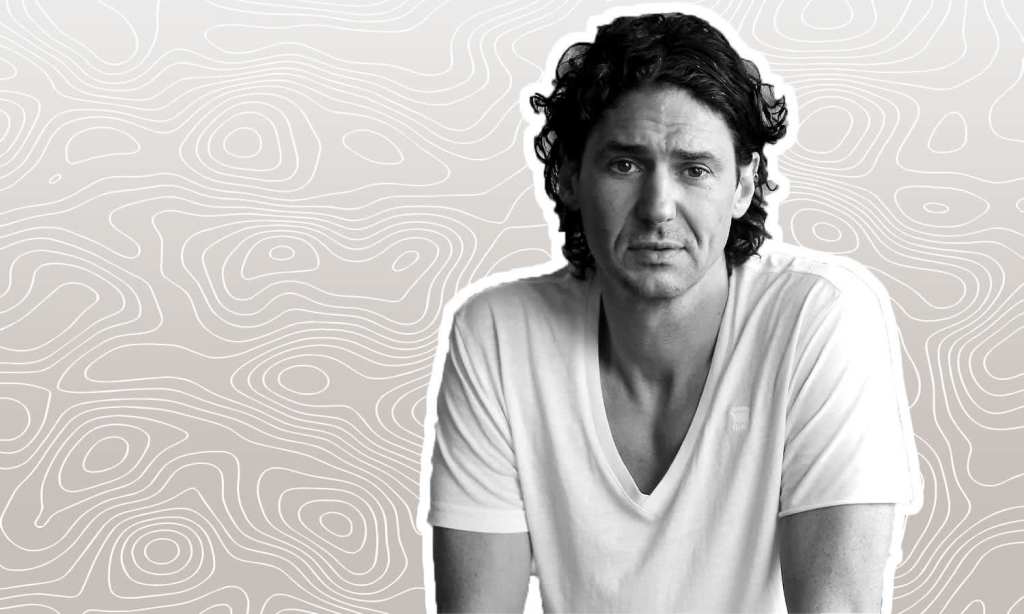Chef Colin Fassnidge has been a key figure in Australia’s foodie scene since he arrived in Sydney in 1999 from his native Ireland.
He’s worked at some of the city’s best restaurants, including the Four in Hand in Paddington, and headed up 4Fourteen in Surry Hills.
Having trained under Raymond Blanc, Fassnidge has gone on to write a regular column in Delicious magazine, become one half of The Chef and the Butcher duo, and worked as a judge on My Kitchen Rules. He’s also the author of two cookbooks, Four Kitchens, and The Commonsense Cookbook and has recently returned to doing what he loves best; excellent pub food inspired by Old World traditions at the Banksia Hotel, South Sydney.
One thing has remained constant throughout his career however and that is a dedication to simple, wholesome cooking without the fuss and the finery. Fassnidge has long been a champion of ‘nose-to-tail’ eating, spotlighting the less popular cuts and aiming to use up every ingredient in innovative ways.
This makes him a perfect candidate to speak to the power and the benefits of OzHarvest, Australia’s leading food rescue charity who have been fighting to put the mountain of food Aussies waste each year to good use for nearly two decades.
The Latch caught up with Fassnidge to talk through some of the ways in which you can minimise your own food waste and make sure you use up every last scrap. It’s not just good for you, your wallet, or the environment, it’s good for the whole planet too.
The Latch: How did you get involved in OzHarvest and why do the company and its aims speak to you?
Colin Fassnidge: I’ve been part of the OzHarvest family for many years. Lots of chefs get involved through their annual CEO CookOff (which sadly can’t happen at the moment due to COVID). This hands-on event is where CEOs join you in the kitchen to create a delicious dinner which we then serve to the guests, who are all people affected by food insecurity. It’s a humbling experience which feeds your soul and you want to keep doing it.
I went to the premiere of the documentary Food Fighter and I cried. Ronni is an inspiration to so many people and I’ll always do whatever I can to help. It’s also almost impossible to say no to her!
TL: As a chef, how much do you see food waste as a problem in kitchens and the hospitality industry?
CF: It’s a huge problem for start-up and young restaurants, who tend to buy ingredients without considering a second use.
Some restaurants are not always using the whole ingredient — if you buy the carrots, you also buy the stems and the stalks, so you need to find creative ways to use both in your menu planning.
TL: What are some of the main contributors to food waste in your industry and what can be done to reduce them?
CF: A big one is style over substance, where you may only want or need certain elements on the plate so it has the right aesthetic.
When buying a product, think about repurposing ingredients. Plan your menu to use the whole ingredients like the green leaves from a cauliflower or the broccoli stems. Also when you have cooked ingredients, make sure you plan ahead to give them a second life.
TL: Have you noticed a growing awareness and a movement towards better use of food and the reduction of food waste? Are chefs more conscious of this as an issue?
CF: There is definitely a growing movement, with many young chefs making focusing on no waste and sustainability, from menu design to growing their own produce.
I think Matt Stone and Jo Barrett are hospitality leaders in this area.
TL: How has the OzHarvest Use It Up tape improved your own food usage at home (aside from lasagne jaffles)?
CF: The best thing is that it’s got my family talking about what’s in the fridge! Before they would just let me worry about it, but now they are curious to see what has a ‘use me up’ or ‘eat me up’ sticker on it!
TL: Finally, what’s your best advice for people to be able to minimise their food waste? And great recipe ideas using leftovers?
- Plan your shopping list
- Don’t shop when you’re hungry (this always leads to buying things you don’t need!)
- Buy food to get two uses… roast pumpkin on Monday is soup on Tuesday. There are lots of ideas in my cookbook — The Commonsense Cook available at bookshops!
- Always try and think of another dish with food that needs using up. I usually try and make half the amount of food go into at least two meals.
- Think like a chef… every leftover vegetable, no matter what it is, can be turned into a delicious soup!
Read more stories from The Latch and subscribe to our email newsletter.







